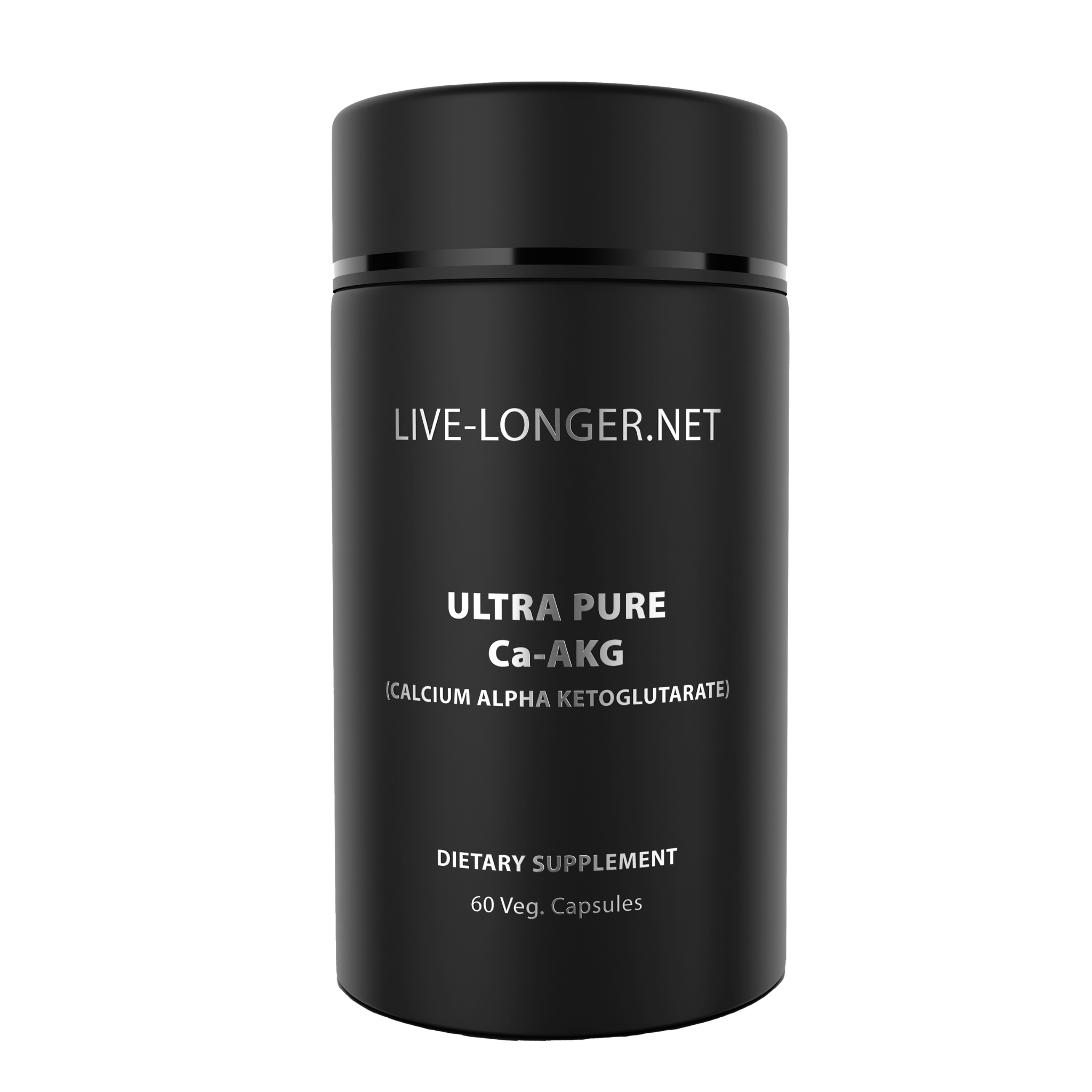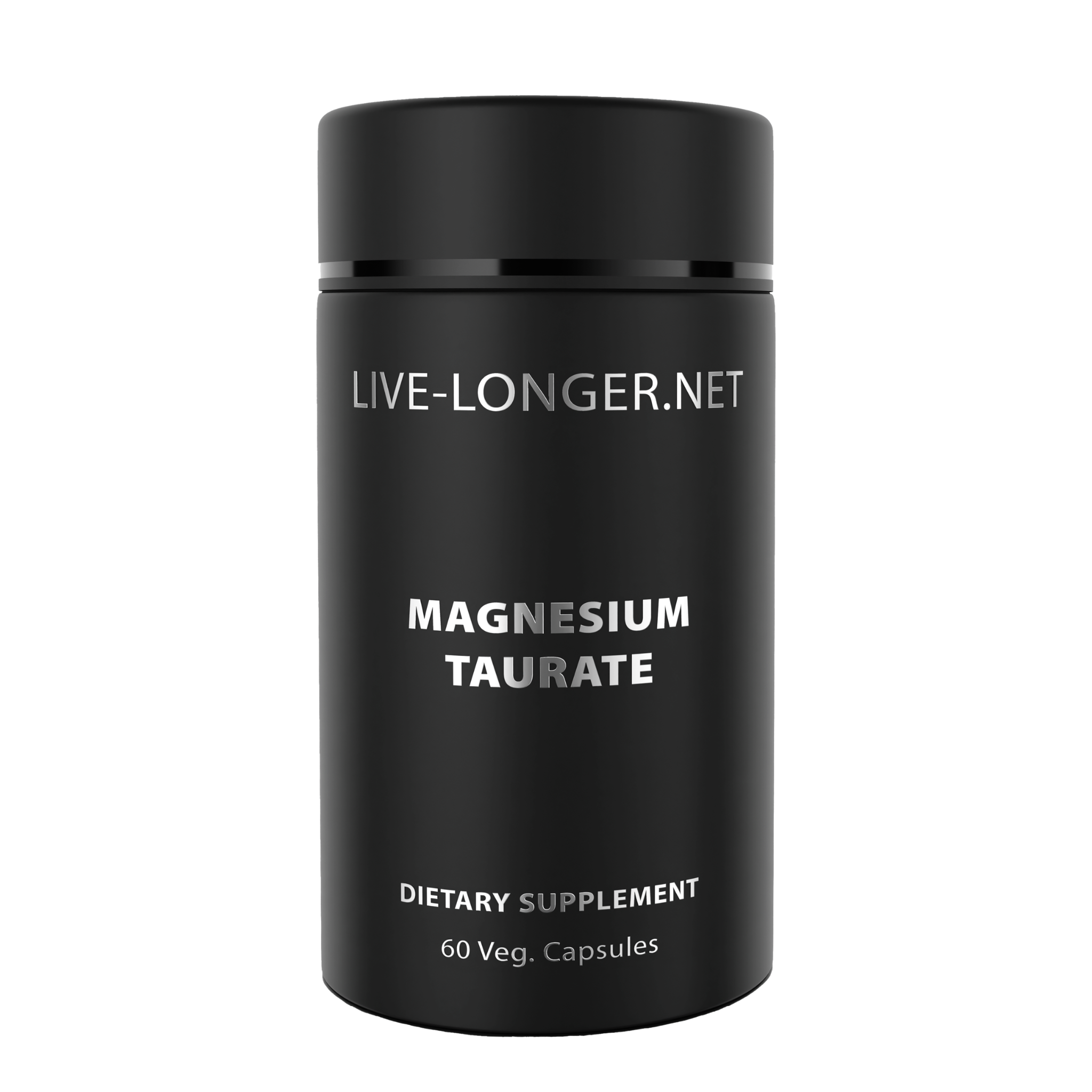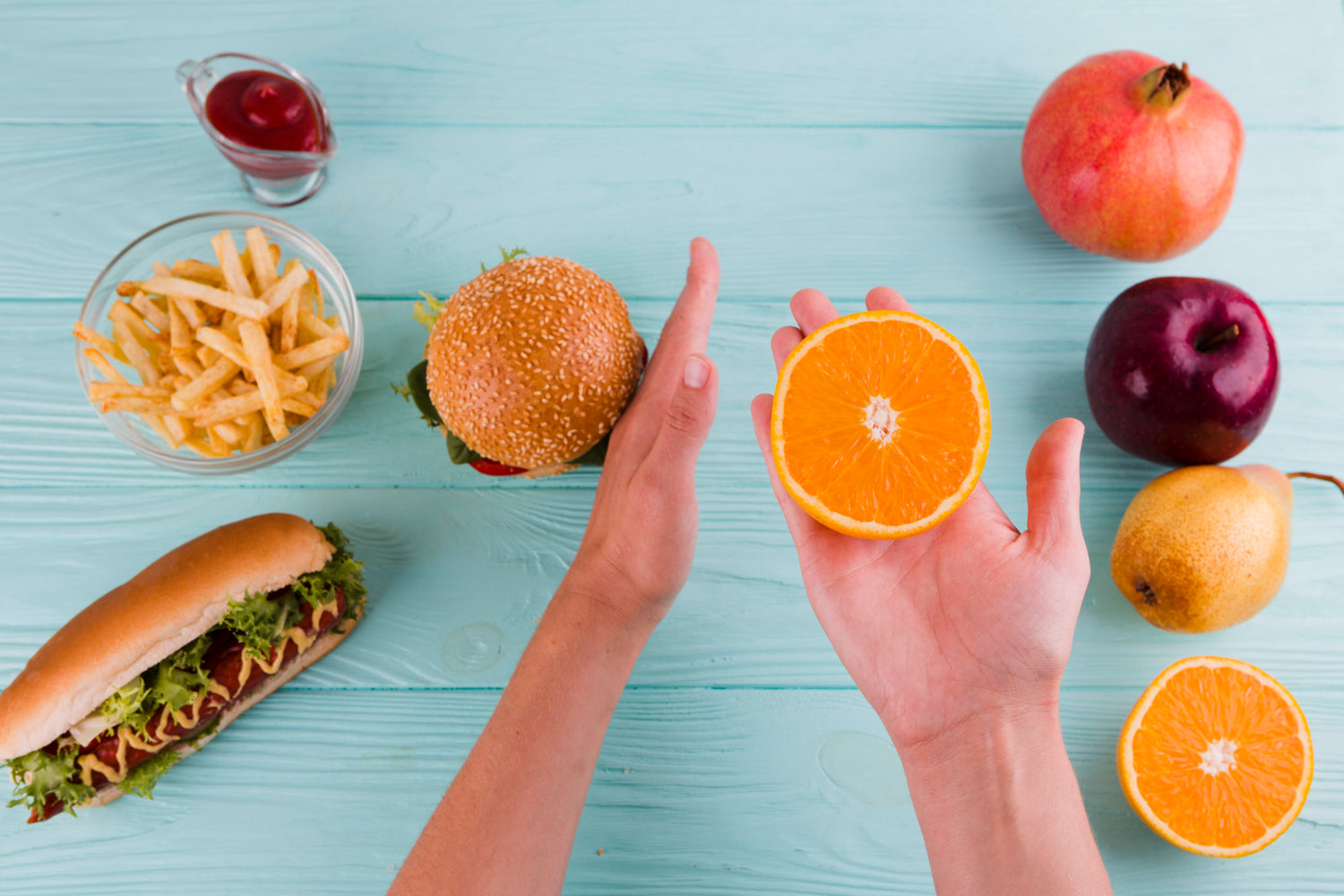Antioxidants have gained a lot of attention in recent years, and for good reason. They help fight off damage caused by free radicals, which are unstable molecules that can wreak havoc on your body. Whether it's through helping you stay youthful or boosting your immune system, the benefits of antioxidants are truly life-changing.
In this guide, we will discuss what antioxidants are, how they work, and why they're a key player in maintaining your health. Plus, we'll share where you can find them and how to easily add them to your diet. So, let's get started.
What Are Antioxidants?
To put it simply, antioxidants are molecules that protect your cells from damage. They act like a protective coating that prevents or slows down cell damage.
But where do these free radicals come from, and why are they so bad? Free radicals are by-products of normal bodily functions like metabolism, but they're also generated by exposure to things like pollution, cigarette smoke, and UV rays. When free radicals build up, they cause oxidative stress, which can lead to cell damage and, in turn, various diseases (1).
Antioxidants neutralize these free radicals, stopping them from causing further harm. Some of the most common antioxidants include vitamins like Vitamin C, Vitamin E, and beta-carotene. You'll also find powerful compounds like polyphenols and flavonoids in certain foods and supplements (2).
But don't worry, you don't need a PhD to understand this—just know that antioxidants are here to help keep you healthy and energized.
Now, you might be wondering. Are there different types of antioxidants? Absolutely! Some are naturally produced in your body, while others must come from the food you eat or supplements. Both are important, and as we explore, we see that incorporating them into your life can offer incredible benefits.
How do Free Radicals Affect the Body?
Free radicals are unstable molecules that love to mess with your DNA, proteins, and lipids. They're generated both inside your body (like through normal metabolism) and external factors like pollution, processed foods, and even too much sun exposure.
When free radicals outnumber the antioxidants in your body, they cause something called oxidative stress. This imbalance can lead to a variety of health problems, including inflammation, aging, and chronic diseases like cancer and heart disease.
Scientific studies support this, too. For instance, research found that oxidative stress plays a major role in cardiovascular diseases and has been linked to the development of atherosclerosis (3). Another study published in Cell Communication and Signaling highlights how oxidative damage is linked to cancer progression (4).
The good news? Antioxidants come to the rescue by neutralizing free radicals before they can cause any more harm. They donate an electron to these free radicals, essentially "disarming" them. Therefore, by keeping your antioxidant levels high, you can help your body fight off the harmful effects of oxidative stress.
Top Sources of Antioxidants
Some of the best natural sources of antioxidants include fruits like blueberries, strawberries, and oranges, as well as vegetables like spinach, kale, and bell peppers.
But it's not just about food. Certain supplements can also give you an extra antioxidant boost. Here are some of the most powerful antioxidant supplements available:
Berberine
Known for its anti-inflammatory and antioxidant effects, berberine can help fight oxidative stress and has been shown to improve heart health and blood sugar levels.
Quercetin
This flavonoid is found in many fruits and vegetables and has powerful antioxidant properties. Quercetin can help reduce inflammation and even boost immunity.
Apigenin
Found in parsley, celery, and chamomile, apigenin has strong antioxidant and anti-cancer properties. It can help combat oxidative stress and may also have neuroprotective benefits.
Resveratrol
Often found in red wine and grapes, resveratrol is known for its heart-healthy benefits. Resveratrol has been shown to reduce inflammation and may even promote longevity.
By incorporating these supplements into your daily routine, along with antioxidant-rich foods, you can significantly enhance your body's defense system. And remember, it's all about balance—there's no need to go overboard, but small changes can add up to big health benefits!
Health Benefits of Antioxidants
Now that we know where to find antioxidants, let's discuss the many ways they can benefit your health.
Anti-Aging Properties
Who wouldn't want to slow down the aging process? Antioxidants are widely known for their role in protecting your skin from premature aging. By neutralizing free radicals, antioxidants help to reduce oxidative damage to your skin cells, which is a major contributor to fine lines, wrinkles, and other signs of aging.
Take Vitamin C, for example. Not only is it a powerful antioxidant, but it's also essential for the production of collagen, a protein that keeps your skin firm and elastic. A study published in Nutrients found that antioxidant-rich Vitamin C can improve the appearance of aging skin by reducing oxidative stress (5).
So next time you're looking at anti-aging skincare, just remember that the benefits of antioxidants are really the ones that are doing the heavy lifting! You can almost think of them as the skincare routine you didn't know you were already eating.
Boosting the Immune System
Your immune system is like your body's personal army, and antioxidants play a crucial role in keeping it in fighting shape. Free radicals can weaken your immune defenses, but antioxidants help protect immune cells from damage, ensuring your body can fend off illnesses more effectively.
A study published in Antioxidants found that antioxidants like Vitamin E and selenium are essential for optimal immune function (6). Regularly consuming foods or supplements rich in these antioxidants can help your body respond better to infections, especially as you age.
So, if you're looking to avoid that cold or flu that always seems to come at the worst time, increasing your intake of antioxidants might just help you stay one step ahead!
Improved Heart Health
Antioxidants can also be a game-changer for your heart. Oxidative stress is a major contributor to heart disease, which is the leading cause of death worldwide. The good news? Antioxidants like flavonoids, found in foods like berries and dark chocolate, have been shown to improve heart health by reducing inflammation and improving blood flow.
Resveratrol has been extensively studied for its heart-protective effects. Research from the Iranian Journal of Basic Medical Sciences found that resveratrol can improve heart health by reducing bad cholesterol (LDL) and increasing good cholesterol (HDL) (7).
Reduced Cancer Risk
Although no single food or nutrient can prevent cancer, a diet rich in antioxidants may help reduce your risk. Antioxidants like beta-carotene, lycopene, and selenium protect cells from the type of oxidative damage that can lead to cancer.
Research published in the Advances in Nutrition suggests that a higher intake of antioxidant-rich fruits and vegetables is associated with a lower risk of several types of cancer. Antioxidants help by preventing mutations in DNA and reducing the damage caused by free radicals, which can otherwise lead to cancerous cell growth (8).
How to Incorporate Antioxidants into Your Daily Life?
Now that we've talked about the incredible benefits of antioxidants let's discuss how you can easily incorporate them into your daily routine—without needing to overhaul your entire lifestyle.
First off, start with your diet. The easiest way to boost your antioxidant intake is by eating a wide variety of colorful fruits and vegetables. A good rule of thumb is to "eat the rainbow." That means filling your plate with colorful foods like red tomatoes, orange carrots, yellow bell peppers, green spinach, and purple blueberries. Not only do these foods look great on your plate, but they're also packed with different types of antioxidants.
If you're short on time or just looking for a quick fix, antioxidant-rich smoothies are an excellent option. Blend up some spinach, a handful of berries, and a splash of almond milk for a tasty, antioxidant-packed drink. Bonus points if you add some antioxidant-rich supplements like quercetin or resveratrol. Your morning routine just got a lot healthier!
Speaking of supplements, while whole foods should always come first, there's nothing wrong with adding a little extra boost in the form of supplements, especially if you're not getting enough from your diet alone. Berberine, quercetin, apigenin, and resveratrol are great choices, as we mentioned earlier. Just be sure to talk to your doctor to make sure they're right for you.
The Bottom Line
The benefits of antioxidants are life-changing, from fighting free radicals to slowing down the aging process. Whether it's through improving heart health, boosting your immune system, or protecting your brain, these tiny molecules pack a powerful punch.
Incorporating antioxidants into your life doesn't have to be complicated. Start small by adding more colorful fruits and vegetables to your diet, sip on antioxidant-rich green tea, or treat yourself to a square of dark chocolate. You can even explore supplements like berberine or resveratrol for that extra boost.
So, next time you hear about antioxidants, you'll know exactly why they're so important—and how they can keep you feeling great, both inside and out. Ready to start reaping the rewards? Your body will thank you for it!
References
- Phaniendra A, Jestadi DB, Periyasamy L. Free Radicals: Properties, Sources, Targets, and Their Implication in Various Diseases. Indian Journal of Clinical Biochemistry [Internet]. 2014 Jul 15;30(1):11–26. Available from: https://www.ncbi.nlm.nih.gov/pmc/articles/PMC4310837/
- Pham-Huy LA, He H, Chuong Pham-Huy. Free Radicals, Antioxidants in Disease and Health. International Journal of Biomedical Science : IJBS [Internet]. 2008 Jun [cited 2024 Oct 18];4(2):89. Available from: https://pmc.ncbi.nlm.nih.gov/articles/PMC3614697/
- Batty M, Bennett MR, Yu E. The Role of Oxidative Stress in Atherosclerosis. Cells [Internet]. 2022 Nov 30 [cited 2024 Oct 18];11(23):3843. Available from: https://www.ncbi.nlm.nih.gov/pmc/articles/PMC9735601/
- Muhammad Javed Iqbal, Kabeer A, Abbas Z, Hamid Anees Siddiqui, Calina D, Javad Sharifi‐Rad, et al. Interplay of oxidative stress, cellular communication and signaling pathways in cancer. Cell Communication and Signaling [Internet]. 2024 Jan 2;22(1). Available from: https://biosignaling.biomedcentral.com/articles/10.1186/s12964-023-01398-5
- Pullar JM, Carr AC, Vissers MCM. The Roles of Vitamin C in Skin Health. Nutrients [Internet]. 2017 Aug 12;9(8):866. Available from: https://www.ncbi.nlm.nih.gov/pmc/articles/PMC5579659/
- Xiao J, Khan MZ, Ma Y, Alugongo GM, Ma J, Chen T, et al. The Antioxidant Properties of Selenium and Vitamin E; Their Role in Periparturient Dairy Cattle Health Regulation. Antioxidants [Internet]. 2021 Sep 29 [cited 2024 Oct 18];10(10):1555. Available from: https://www.mdpi.com/2076-3921/10/10/1555
- Chang GR, Chen PL, Hou PH, Mao FC. Resveratrol protects against diet-induced atherosclerosis by reducing low-density lipoprotein cholesterol and inhibiting inflammation in apolipoprotein E-deficient mice. Iranian Journal of Basic Medical Sciences [Internet]. 2015 Nov [cited 2024 Oct 18];18(11):1063. Available from: https://pmc.ncbi.nlm.nih.gov/articles/PMC4764106/
- Aune D. Plant Foods, Antioxidant Biomarkers, and the Risk of Cardiovascular Disease, Cancer, and Mortality: A Review of the Evidence. Advances in Nutrition [Internet]. 2019 Nov 1 [cited 2024 Oct 18];10(Supplement_4):S404–21. Available from: https://academic.oup.com/advances/article/10/Supplement_4/S404/5624065









